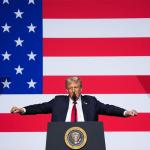China’s recent intervention in Hong Kong’s burgeoning cryptocurrency market has sent stocks of several prominent brokerages plummeting, highlighting the ongoing tension between mainland China’s regulatory skepticism and Hong Kong’s ambition to establish itself as a global crypto hub. The market response to Beijing’s advisory has been swift and severe, as investors grapple with the implications of such regulatory shifts on the crypto landscape.
### Regulatory Background
The China Securities Regulatory Commission (CSRC) recently issued informal guidance advising major brokerages in Hong Kong to pause their real-world asset (RWA) tokenization initiatives. This move comes as numerous Chinese firms have eagerly sought to launch a variety of RWA products, intending to convert traditional assets—such as stocks, bonds, and real estate—into digital tokens secured by blockchain technology.
As of late September, the effects of this guidance were palpable on the stock market. Firms like Guotai Junan International and GF Securities saw their stock prices decrease between 2% and 7.25%. Overall, Hong Kong’s market index fell by 0.9%, reflecting broader investor concerns regarding regulatory risks in the crypto sector.
### The Rise and Fall of RWA Tokenization
In recent months, Hong Kong appeared to be on a trajectory to capitalize on the global enthusiasm for cryptocurrencies and tokenization. By the end of August, 77 firms had expressed interest in obtaining licenses for stablecoin operations, underscoring a rapidly growing sector. Beijing’s cautious approach to digital assets, however, contrasts sharply with Hong Kong’s progressive stance. While mainland China continues to uphold a ban on cryptocurrency trading and mining implemented in 2021, Hong Kong has endeavored to embrace digital asset innovation.
The RWA tokenization market had gained significant momentum, with projections from China Merchants Securities estimating its value could skyrocket from approximately $29 billion to over $2 trillion by 2030. This explosive growth potentially called attention to the sector and raised concerns within Beijing about the risks associated with such rapid expansion.
### Implications for Brokerages
The fallout from Beijing’s regulatory guidance serves as a stark reminder of how quickly sentiment can shift within the financial space, particularly concerning cryptocurrencies. Brokerages were left reeling as they attempted to navigate this tumultuous landscape. Guotai Haitong Securities serves as a notable example of the volatility in play; stocks surged more than 400% following news that they had gained regulatory approval for cryptocurrency trading services, only to face a downturn once the recent advisories were issued.
Moreover, further regulatory scrutiny was indicated earlier when Chinese authorities instructed local brokers to cease publication of research that endorsed stablecoins, signaling a deeper concern regarding the activities of these firms and the enthusiasm of domestic investors for such digital instruments.
### The Broader Context
China’s hesitance is rooted in a fear of financial instability and a desire to maintain control over the financial system. The duality of Hong Kong’s aspirations and mainland China’s restrictions complicates the region’s position in the global digital asset landscape. While Hong Kong has positioned itself aggressively, the central government’s lingering skepticism inhibits broader acceptance of cryptocurrencies.
The CSRC’s stated reason for intervention was to ensure that companies engaging in RWA tokenization conducted adequate risk management and supported their claims with robust, legitimate business practices. The guidance underscores the need for a more structured and regulated approach to this burgeoning market.
### Conclusion
The recent regulatory actions underscore the fragile nature of the crypto market between mainland China and Hong Kong. As both regions navigate their way through a fast-evolving financial landscape, the impact of government intervention can be felt almost instantly, as seen with the significant stock declines among brokerages involved in RWA initiatives.
For prospective investors and stakeholders in Hong Kong’s crypto ecosystem, this serves as a crucial reminder of the importance of regulatory awareness in shaping investment strategies. The path forward for Hong Kong as a crypto hub may require a delicate balance between fostering innovation and adhering to the cautious sentiments dictated by mainland China’s policy environment. Only time will reveal how this dynamic relationship will evolve in the ongoing journey toward digital asset acceptance in the region.
Source link









